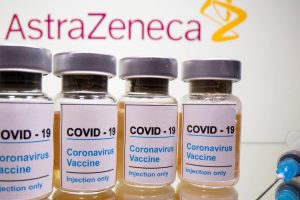A total of 35 civil society organizations and eight concerned individuals of the world have urged the World Health Organisation (WHO) to update the guidelines for facilitating access to new biologic medicines. They have made the call in a joint letter addressed to Prof. Cichutek, Chairperson, Expert Committee on Biologic Standardization, World Health Organisation.We, the undersigned Civil Society Organizations are writing to request to the ECBS the update of the 2009 Guidelines on Evaluation of Similar Biotherapeutic Products at its upcoming meeting as mandated under the WHO resolution WHA67.21. This is a critical step to expedite access to the biologic medicines included in the WHO Model List of Essential Medicines (EML).
As you know, current evidence suggests that biotherapeutics therapies (BTPs) play an important role in advancing therapeutic outcomes for several autoimmune and degenerative diseases and in cancer treatment. However, BTPs are extremely expensive and consequently not accessible to patients, especially in Low and Middle-Income Countries (LMICs). For example, the cost of one vial of adalimumab (for the originator product Humira from AbbVie) would cost about $1000 – almost equivalent to the average annual wage in a low-income country. The high prices are a reflection of protected monopolies in the biotech sector. Unlike in the case of generic equivalents of small molecule originator drugs, there is no effective competition in the market for BTPs even in situations where the patents of the originator molecules have expired. Beyond the technological or intellectual property barriers, regulatory challenges are the main reason for the lack of competition and therefore high prices.
The current WHO Guidelines on Evaluation of Similar Biotherapeutic Products’ requirement of comparative clinical trials does not take into account the technological advances for the characterization of biotherapeutic products, making the development of non-originator biotherapeutic products unnecessarily expensive and time-consuming. The guidelines require a head to head comparison of non-originator biotherapeutic products with the originator product to establish similarity in quality, safety, and efficacy.
Additionally, there is robust (and growing) scientific evidence that calls into question the need for comparative clinical trials for the approval of non-originator biotherapeutic products (bio competitors). We would like to draw your attention to the Memo signed by 8 scientists calling for Revision of the SBP guidelines and for the initiation of the revision of those guidelines as required as well by the WHA 67.21, which explicitly request the Director-General to convene ECBS “to update” the SBP guidelines.
While access to essential medicines is an integral part of universal healthcare, the financial hardships associated with high prices for some health processes and the inequitable access within and among the Member States impede progress in achieving Universal Healthcare. Failure of the ECBS and the WHO Secretariat to update the Guidelines according to the latest scientific evidence compromises access to affordable essential biotherapeutic products and therefore it is a limitation to the full realization of the right to health.
Therefore, we would like to reiterate our request to the WHO’s Expert Committee on Biological Standardization to take the opportunity at the upcoming meeting to examine the scientific evidence behind the insistence of comparative head to head clinical trials under WHO’s Guidelines on Evaluation of Similar Biotherapeutic Products (SBP Guidelines) and update those accordingly. We also request you to provide reasons backed by verifiable evidence for your decision.
SIGNATORIES
1. Access to Medicines, Ireland
2. All India Drug Action Network, India
3. Campaign for Affordable Trastuzumab (India)
4. Cancer Alliance, South Africa
5. Cancer Patients Aid Association, Mumbai, India
6. Cáritas Latin America and the Caribbean (SELACC)
7. Colombian Bishops Conference
8. Committee for Citizen Oversight and Cooperation in Health (Colombia)
9. Delhi Network of Positive People (DNP+), India
10. Drug Action Forum-Karnataka, India
11. European Aids Treatment Group (EATG)
12. Fundación GEP, Argentina
13. Health Gap (Global Access Project), USA
14. Heart to Heart Foundation, Thailand
15. IFARMA, Colombia
16. Initiative for Health & Equity in Society, India
17. International Treatment Preparedness Coalition (ITPC) -South Asia
18. Kenyan Network of Cancer Organizations (KENCO)
19. LAC-Global Alliance for Access to Medicines
20. Medicines Information Center of the National University of Colombia (CIMUN)
21. Medicines Observatory of the Colombian Medical Federation (OBSERVAMED-FMC)
22. Misión Salud, Colombia
23. NCD Network, South Africa
24. No Gracias, Spain
25. People’s Health Movement (PHM)
26. Positive Malaysian Treatment Access & Advocacy Group (MTAAG+)
27. Public Eye, Switzerland
28. Red Latinoamericana por el acceso a medicamentos
29. Salud por Derecho, Spain
30. Salud y Fármacos, USA
31. South Africa NCDs Alliance
32. Stop Aids Now, UK
33. Third World Network, Malaysia
34. Universities Allied for Essential Medicines
35. Yolse, Switzerland
Concerned individuals:
1. Achal Prabhala, Coordinator of the AccessIBSA Project, India
2. Amulya Nidhi, India
3. Biswajit Dhar, Professor, Centre for Economic Studies and Planning, School of Social Sciences, Jawaharlal Nehru University, India
4. Eldred Tellis, Sankalp Rehabilitation Trust, India
5. Ganesh Acharya, TB survivor-activist, India
6. Jan Swasthya Abhiyan, India
– Third World Network




